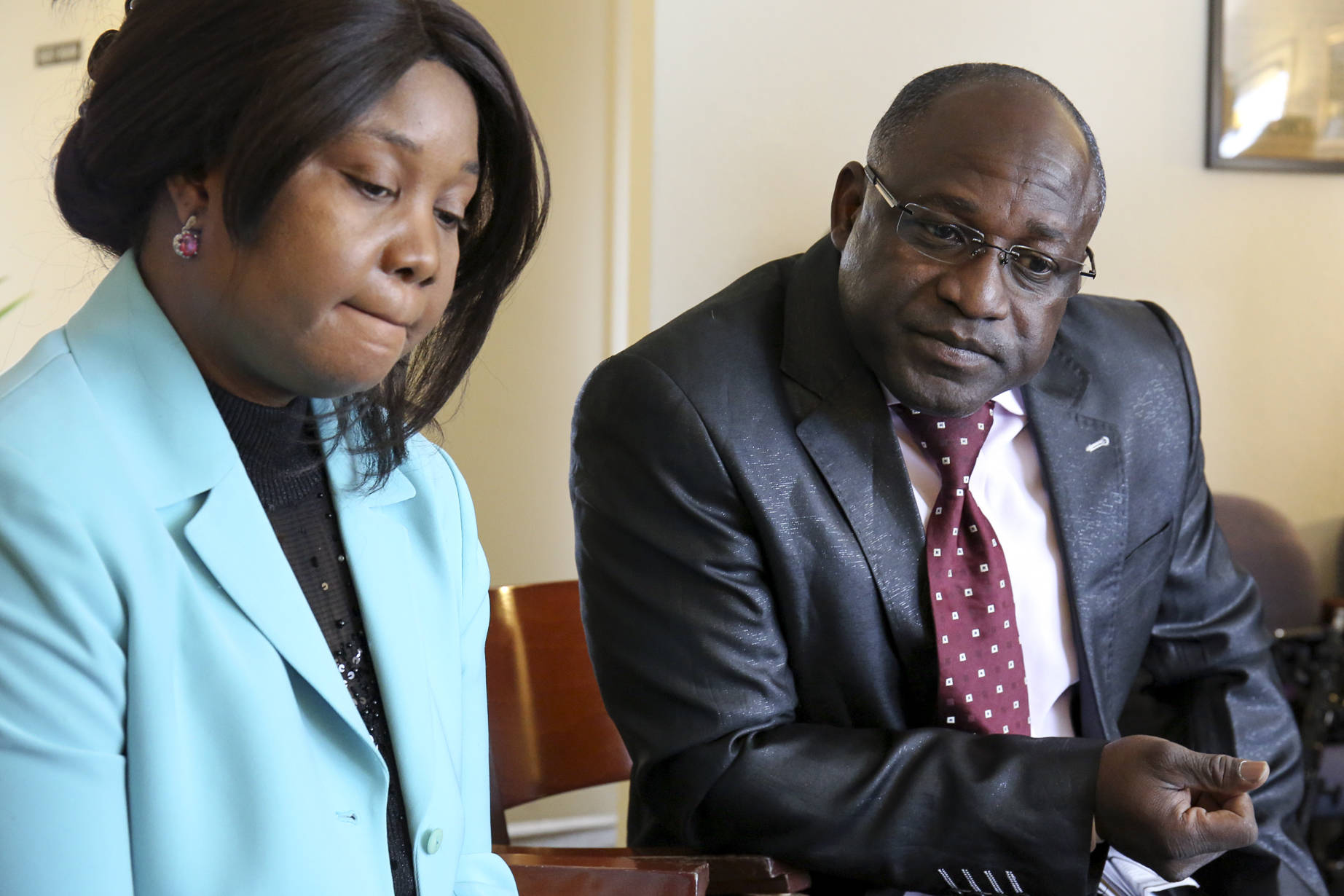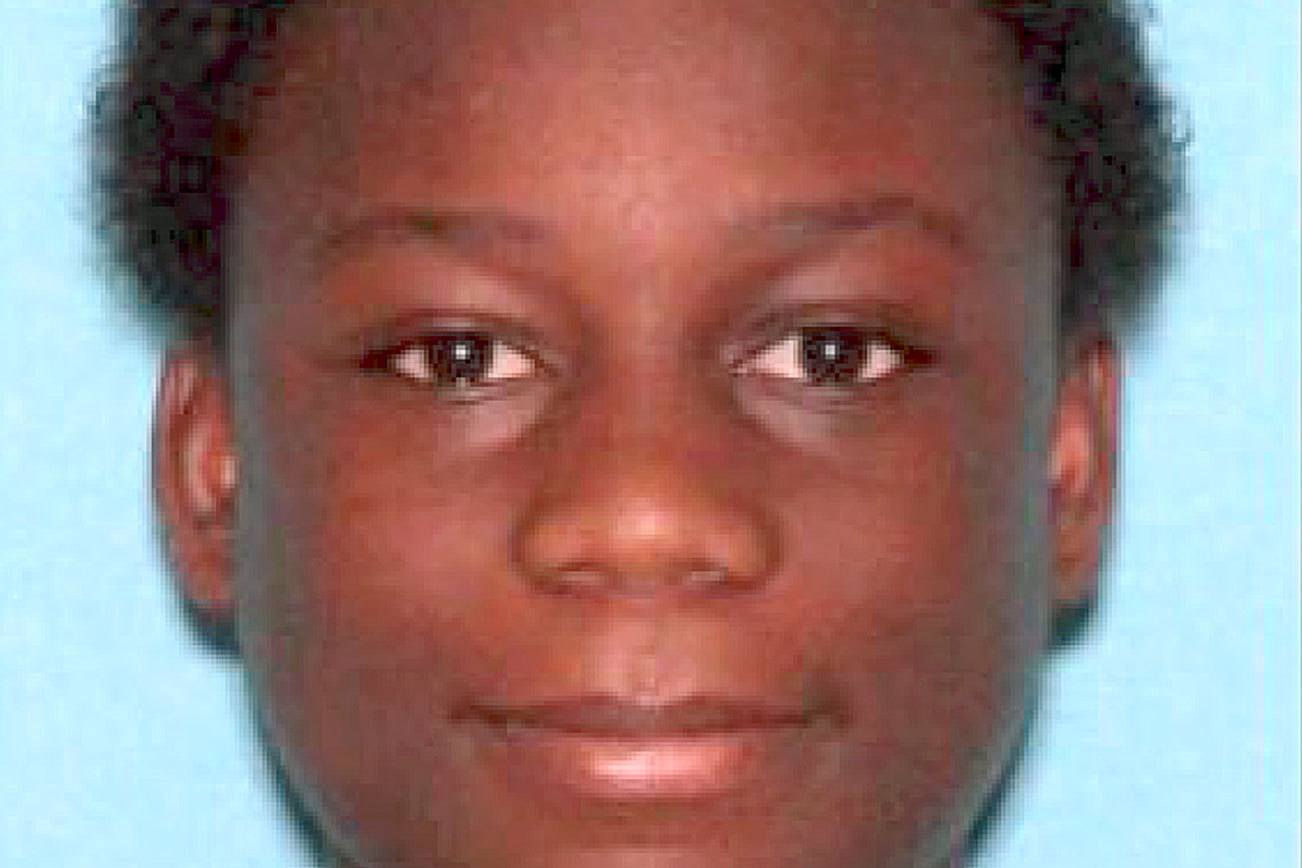EVERETT — As the death of a Lake Stevens teen draws attention from around the globe, what’s not disputed is that his family is hurting.
Ibrahima and Aissata Keita wanted to raise their children in a community with good schools.
In 2000, they moved to Lake Stevens. Now, after the recent death of their son, 18-year-old Ben Keita, they say they are fearful that others may hold hatred for people like them, people who are black and Muslim.
The Lake Stevens Police Department and the FBI both have been involved in the death investigation. Both agencies say there is no sign of foul play. The police consider the death a suicide, though an autopsy did not make a conclusive finding.
“Our investigation to date has not found evidence of wrongdoing, or of any criminal act,” Police Chief John Dyer said Wednesday. He noted that detectives still are asking for tips.
Last week, the Keitas and the Seattle chapter of the Council on American-Islamic Relations began pushing for national media coverage of the death. It was not their intent to spur stories that called the death a possible “lynching” or to imply that a hate crime had taken place and was ignored, the council’s executive director, Arsalan Bukhari, told The Daily Herald on Wednesday.
“No matter what the motive or manner of death … We have no idea what happened,” Bukhari said.
He spoke with the newspaper before a press conference at an Everett law firm. At the press conference, the Keitas again called for the FBI to take over the case. Communication between the family and Lake Stevens police has reached an impasse.
“There were a lot of questions out there,” Ibrahima Keita said. “We hope the investigation is still going. We don’t want to speculate anything. We really want answers.”
On Friday, the FBI said it was conducting a review of the death, which is different than opening an investigation. They’ve provided assistance to Lake Stevens since the disappearance.
“Evidence collected to date does not provide any indication of a criminal act,” the FBI said last week. It wasn’t clear Wednesday whether the Keitas were aware of the FBI’s statements.
Already, their story has become part of a country-wide conversation about racism and religious discrimination. The president of the Snohomish County chapter of the NAACP, who was at the press conference Wednesday, has said the death is part of what she called a pattern of escalating violence against people of color. Several state Democratic lawmakers also have issued a statement, saying they support the family’s efforts to learn more.
Lake Stevens Mayor John Spencer said he and others in town are saddened by the death. He wants to bring people together to talk about the issues, he said, because everyone should feel safe, welcome and respected.
“It is a shock to our soul,” he said. “It is a tragic event.”
The police department also has asked the state Attorney General’s Office to conduct a review and offer guidance. The department has received only a few tips in recent weeks, and none have been substantial, according to the chief.
Police discovered that Keita had stopped going to his Running Start classes at Everett Community College about three weeks before his disappearance. Transcripts obtained by the civil rights group, known as CAIR, show he was a solid B student as recently as June and was on track to graduate from Lake Stevens High School. His family says he excelled at science and math.
The Keitas say they aren’t sure what happened in their son’s life. No one has indicated to them that Keita was bullied or targeted with anti-Islamic comments. He spent a lot of time alone in his room, playing video games. He liked to read, especially science fiction. He was quiet and protective of his family, and may have withheld information to shield them, they said Wednesday. He didn’t seem depressed or anxious. They didn’t know he had been skipping classes.
He told them he wanted to become a doctor. He had sickle cell anemia and had been inspired by people who work in the medical field, they said.
The teen’s phone was wiped before detectives could examine it for clues, according to police and CAIR. They have recovered call and text history from the cellphone provider. They also have Keita’s bank statements, CAIR says.
Because he was an adult, his family doesn’t have access to his college records to know how he was doing in class. They have paperwork showing he registered in October for the winter quarter, which started in January. A high school counselor described him as well-adjusted.
Active police investigations are exempt from public disclosure in Washington. The family has been provided a copy of the detectives’ reports. Bukhari on Wednesday allowed the newspaper a limited look.
The family believes more people who knew their son or who live nearby should have been interviewed, and sooner, he said. They feel the detectives pursued several leads only when the family pressed, something the police chief denies. The parents also want to know why organized searches didn’t start immediately.
Keita was reported missing Nov. 26, the Saturday after Thanksgiving. He apparently left his home by himself, without his wallet or phone.
Temperatures around that time were freezing, and the family was worried the cold could trigger problems for his sickle cell anemia. The medical examiner determined he likely was dead for weeks before he was found. Autopsy records indicate his body was frozen.
Experienced searchers didn’t see a body on multiple sweeps of the woods. Instead, passersby called it in Jan. 9.
Missing persons cases often start with cellphone and bank records, Dyer said. Keita didn’t have his phone, so an electronic trace of the device wouldn’t have helped. Without a precise location, the search was focused on a wide area — any woods around the neighborhood — and included a dog trained to detect human remains, Dyer said. He doesn’t know why the searches didn’t lead to the body.
“From the very beginning, we have taken this case seriously and brought every tool to the table to try and bring clarity to Ben’s family and the Lake Stevens community,” Dyer said.
Keita died from hanging. The rope was tied to the tree about 50 feet up, according to medical examiner records. His body was less than a yard above the ground. There were no injuries that would indicate a struggle.
Police don’t know where the rope came from. The family told investigators it wasn’t from their home.
The Keitas told reporters they wanted to get the story out to keep pressure on investigators.
Aissata Keita misses her son. She remembers a respectful and generous young man who looked after his younger siblings.
When a police officer knocked on the door in January, six weeks after the disappearance, the Keitas still had hope their son was alive.
“I’m very sad,” Aissata Keita said. “My heart is broken.”
Rikki King: 425-339-3449; rking@heraldnet.com. Twitter: @rikkiking.






